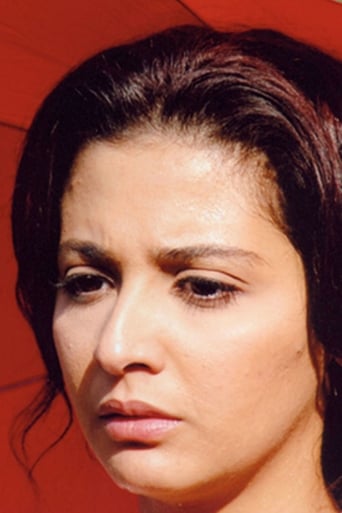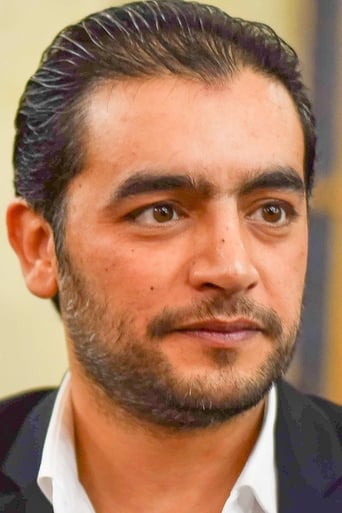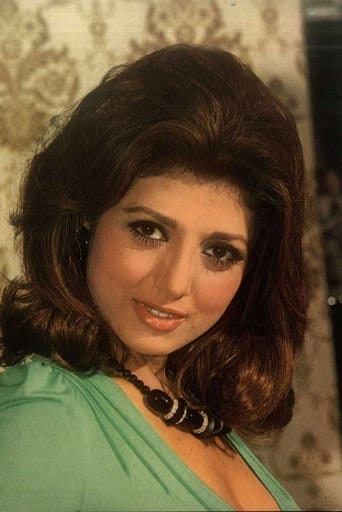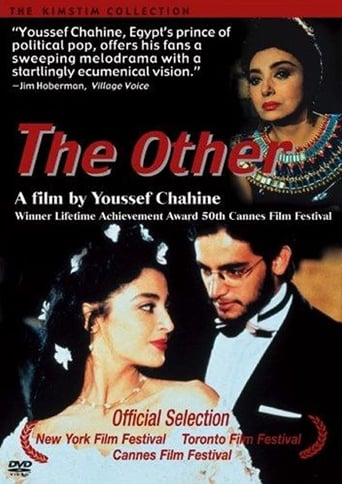
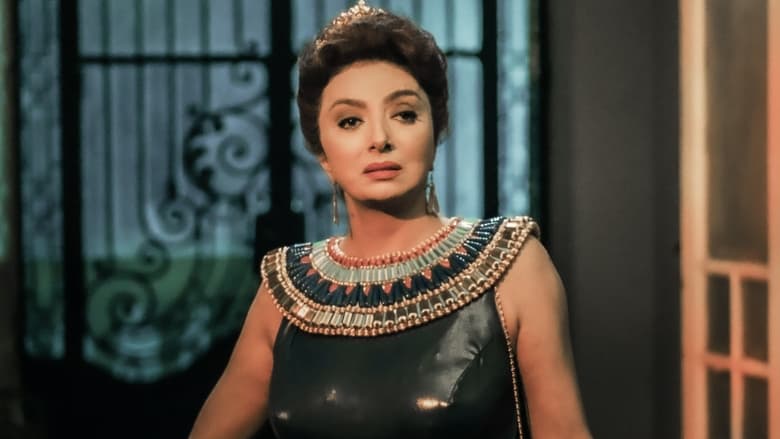
The Other (1999)
Adam is the son of a wealthy Egyptian-American family who is studying at UCLA and returns home for a brief vacation. Upon his arrival he meets beautiful reporter Hanane, with whom he begins an intense love affair, and eventually they marry. Trouble arises when Hanane' s journalistic interests lead her to the corrupt business affairs of Adam's parents, who are interested in building an American tourist compound that would allow Americans further control of Egypt's tourist industry, and make them a whole lot richer.
Watch Trailer
Cast
Reviews
Excellent but underrated film
Instead, you get a movie that's enjoyable enough, but leaves you feeling like it could have been much, much more.
It's hard to see any effort in the film. There's no comedy to speak of, no real drama and, worst of all.
The biggest problem with this movie is it’s a little better than you think it might be, which somehow makes it worse. As in, it takes itself a bit too seriously, which makes most of the movie feel kind of dull.
To the pretentious reviewer who uses 'melodrama' as an insult: What do you know about Egyptian film? Or Arab culture for that matter? If you knew something, you would have realized that any film that begins with a cameo from Edward Said must be somewhat worthwhile (Or at least play with some interesting ideas). Yes, this movie is firmly situated within the romantic-melodramatic genre common in Egyptian cinema. Cinema is at its root a popular entertainment, and many of the greatest masterpieces of American cinema (which most world cinemas have been trying, with varying degrees of success, to emulate since the 30's) were produced in a similar context. What is 'Casablanca' if not a melodrama? Egyptian cinema likewise operates within the framework of melodrama, and utilizes these conventions to tell stories which have a deeper meaning. Watch 'Du'at al-Karawan,' 'la anam,' 'sigara wa ka's', etc... and tell me that's not art. Youssef Chahine has experimented with auteur-style film-making (Iskandriyah leih?) but he also -like Barakat and the best of the Egyptian directors before him, knows how to exploit the narrative tropes of the melodrama genre to create art. So leave your film-festival snobbery at the door and enjoy. 'Al-Akhar' is not Chahine's best film (in my opinion, that's Bab al-Hadid) but it is a well-told story which also takes a frank look at Egyptian society and the complex relationship between the West and the Arab world.
I could not figure out what Yousif Shamine meant by the name of the movie "The Other"? I understood what the movie was about and I can relate it to life in general in the 2000s. I makes you wonder sometimes if people are really that far out of their actions, as if they do not see the effect of their actions on others. It is a tragic ending, but very real. A very good romance between a prince and a unsubdued girl, so it is for a general public. "Le Destin" (1997) was better since it was more historical and the songs were really part of the film. But "L'autre" includes also a fair good critics of terrorism (in Algeria and in Egypt). So, if you've never seen a Chahine's film, see this one, before "Le Destin" and long for the next one.
I watched this as someone who has lived in Egypt and knows enough Arabic to follow the dialog with the help of subtitles. I saw a movie with Hanan Turk last year, and wanted to see more of her. That movie (Dunya)was a lot better than this one. Maybe Chahine (73 when he made this!)is over the hill. At least it had a definite ending, and I suppose the repeated "law of the jungle" warning was the message, but it was a mess.First off, there's too much going on: we are introduced to two young men, one of whom immediately leaves the movie to go back to Algeria and is not seen again except for a brief "fantasy" sequence of his death at the hands of fundamentalists. Then there's a brief sequence with Edward Said--setting up the theme of "Can't we all get along" (I guess).Then we have the love at first sight between Hanane and Adam--I can certainly see Adam's attraction to Hanan (why use her real name, by the way?), but total love at a glance was a bit much. Then the mother-son thing, then the corruption thing, then...it just goes on and on adding elements without developing any of them. Adam knows full well Hanane is a journalist trying to interview a guest at a dinner party, but he invites her to the table and is shocked--shocked!--when she writes what she hears and sees. The mother-son thing is a bit gross and borders on child abuse--I would say goes over the border. Why make Adam's family Christian? Just to knock Christians? A Christian Arab-American conspiracy? Please. The mother is a drunk, a border-line child abuser, hates poor people (esp. Egyptians), and is thoroughly unpleasant. Two questions about all that: First, if Adam is a Christian, why is his middle name "Muhammad"? Second, the mother is thoroughly Egyptian, but she is labeled as an American (OK, maybe she emigrated and came back) and a point is made of describing her parents as a hot dog vendor and a (can't remember what the mother was--a singer?)in New York. So how did she get so rich? The scene of Adam beating up and then raping Hanane (his true love?) was disgusting. How are we supposed to think he really loves her? More, why on earth does Hanane want to get back together with him? Is she nuts? Would a Muslim woman (Hanane) be allowed to marry a non-Muslim in Egypt today? Not according to the Qur'an. Is this realistic? Or is it just to set up the fundamentalist brother's motivation? If so, it's clumsy. The brother and his fellow fundamentalists are given no background, no character, no motivation--nothing. They just appear as a device to end the movie. And Adam flips back and forth between loyalty to his family and to his wife--with no apparent struggle, just flipping back and forth every few hours.So what was this about? None of the characters are admirable--except Uncle Maher, and maybe Hanane. Everyone (rich, poor, Christians, Muslims, fundamentalists, secularists, Americans, Egyptians, etc.) is shown in a bad light. The message I got was they're all bad news--damn them all! A disappointment.
Don't be fooled by appearances: the fact that this is an exotic entry from Egypt doesn't shield the fact that it's just a boy-meets-girl love story given heavier trappings. Adam is the son of a wealthy Egyptian-American family who is studying at UCLA and returns home for a brief vacation. Upon his arrival he meets beautiful reporter Hanane, with whom he begins an intense love affair, and eventually they marry. Trouble arises when Hanane' s journalistic interests lead her to the corrupt business affairs of Adam's parents, who are interested in building an American tourist compound that would allow Americans further control of Egypt's tourist industry, and make them a whole lot richer. The climactic ending of the film is the tragic result of the adults' selfish greed which manifests itself on their children. Not really inspiring in any way, the film does feature some colourful musical numbers and wry moments. Nabila Ebeid is excellent as Adam's hard-driven mother.
